People - GLOBE Observer
Dr. Jason (Brant) Dodson
Question: Where are you from?
Answer: I grew up in Houston, TX.
Question: What is your favorite part about your work with GLOBE Clouds?
Answer: Citizen science is a rapidly growing aspect of the scientific endeavor, and it’s neat being part of the effort to integrate citizen science data with professional scientific research. In particular, the crowdsourced nature of GLOBE Clouds data provides some interesting challenges in analyzing the data, where the volume of reports from the participants can be used, with care, to offset the uncertainties and lack of calibration in individual reports. It’s fascinating to see when the GLOBE data agree closely with other meteorological datasets, and also when they disagree substantially!
Question: What do you like to do when you aren’t working?
Answer: I’ve always been interested in astronomy as well as meteorology – the two sciences that involve looking up. In the past few years I’ve become an amateur astronomer of sorts, and I participate in clubs and observing programs to grow my stargazing abilities. It was interesting for me to witness the 2017 solar eclipse as part of my hobby, and then later be recruited by GLOBE Clouds to assess the meteorological effects of the eclipse using their data!
Question: What inspired you to work in this field?
Answer: I’ve been interested in meteorology since pre-school, so becoming an atmospheric scientist was a natural choice. I initially wanted to study severe weather, and so went to the University of Oklahoma, but developed an interest in the climate aspect of atmospheric science while getting my undergraduate degree. That’s what ultimately led me to NASA instead of NOAA.
Question: What kind of classes did you take to prepare you for your job at NASA?
Answer: As a science major, a lot of science and math. I wound up getting a math minor as a byproduct of the required math courses.
Question: What kinds of skills do you need in your job that you didn’t learn in school? What are some of the most important lessons you have learned in your life?
Answer: Half of science is communicating your ideas and findings. You can do the best research, but if you don’t tell anyone about it, you may as well not have done it. While most science students will take a couple of courses on technical writing and speaking in their careers, there is no substitution for continual learning and practice. Speeches can be tough for introverts like me, but it gets somewhat easier with more experience – taking lots of time to rehearse speeches really helps. And in addition to presenting to your peers, there is a growing appreciation in the scientific community of the need to present science to the general public, which requires a fairly different skill set from technical presentation. This is especially true for citizen science. And a bonus for speaking with the general public is that skillset can carry over to other aspects of life – clubs, community gatherings, and other situations where you have an opportunity to address a group of people.








